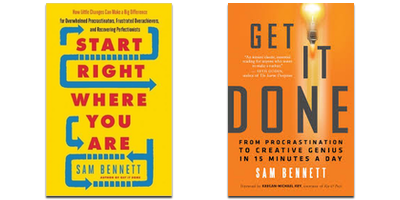Disappointment is, literally, failing to keep an appointment. Which is why I think it hurts a little more than the other bumps and bruises of life.
When you feel disappointed, you are feeling deprived of something you thought was already in motion. If you’re feeling like you have an “appointment” with a promotion or a successful presentation or a new love, having that thing not work out is especially crushing because it was kind of a done deal inside your mind.
And that old saw about “don’t get your hopes up, and that way you won’t get disappointed,” is the biggest bunch of hooey I’ve ever heard.
First of all, it’s a bad strategy because it plain doesn’t.
If something you want doesn’t work out, you’re going to be bummed whether or not you had anticipated the failure.
And missing an opportunity to have delightfully high hopes seems. . . churlish.
I understand the impulse to say, “I just don’t want to get hurt again.” But guess what? You’re here to get hurt.
We’re here to try again. and again. and again. We’re here to gain resiliency.
So I say go ahead — get your hopes up. Dream big, lush, vivid dreams. Imagine your ideal of success with the full knowledge that reality may never measure up.
Then when things do work out, you haven’t wasted one moment tamping down your enthusiasm. And if they don’t work out, well, then, you are free to feel the full force of your disappointment. Which may or may not be as bad as you had imagined it might be.
I bet that if you stacked up all your disappointments you would you would find that very few of them make you think, “Oh, I wish I hadn’t even tried that.” I bet you would mostly think, “Well, I sure learned a lot.”
And that’s the other thing we’re here for: our soul’s education.
Nevertheless, disappointments can leave deep scars. And some disappointments take longer to heal than we’d like, even when we know we “should be over it by now.”
(Over it by now? Says who? What is this mysterious global time frame on getting over things? Honestly.)
Disappointment is a wise and valuable teacher. It acquaints you with grief. Grief, said the Greeks, is the daughter of anger and sadness. These two powerful emotions need to be felt, explored, and lived through.
Otherwise we are only a living shadow of our true selves: pretending we don’t care about the things we care about most.
So there’s a time to cry and a time to stop crying.
photo credit: A.K. Photography via photopin cc


This is very interesting and helpful. Thinking of it as a missed appointment really reframed my perspective in a productive, growth oriented way.
I have depression and while it’s managed really well these days (in significant part by going ahead and fully experiencing even the difficult feelings, like you suggest in this post), that fear of the pain of disappointment is particularly powerful for me because of how many times in the past a disappointment has triggered a depression that laid me out for week or months. I’ve worked through a lot of that junk and don’t let the fear control me any more, but it’s definitely still there. I would love to hear your thoughts on addressing the fear that the crying won’t stop, because it hasn’t in the past. I mean, obviously it will stop, because it has, but when something as simple as a rescheduled lunch date sent you wandering in the darkness for a month many times, it’s that much harder to take a risk, even when you know better.
Great question, Leigh Ann. I think of two things that have helped me: one is to remember that nothing bad is happening. Even when things seem bad to me, or aren’t working out the way I would like, I repeat the phrase, “Nothing bad is happening.” So far it’s always been true. (Another way to approach this is to use Byron Katie’s brilliant “Judge Your Neighbor” worksheet, which can be found for free at http://www.TheWork.com.) The other thought that I find deeply comforting is, “It has come to pass…it has come to pass…” because, indeed, all things pass away whether we like it or not, and everything is temporary. Especially depression, which loves to try to make you believe that it’s always going to feel like this. But it won’t. It has come…to pass. – S.